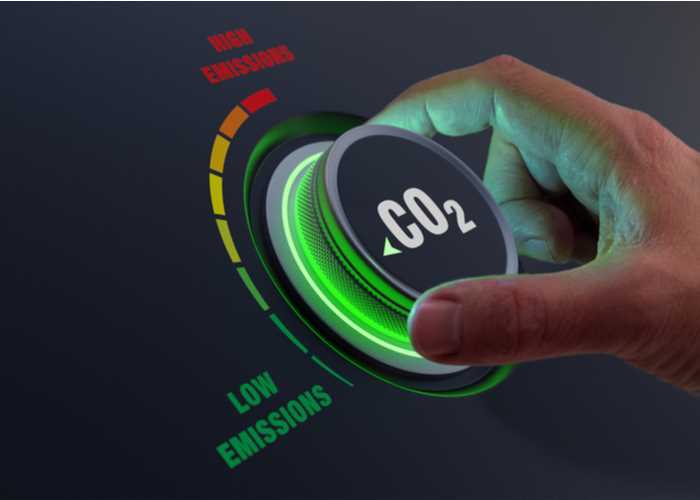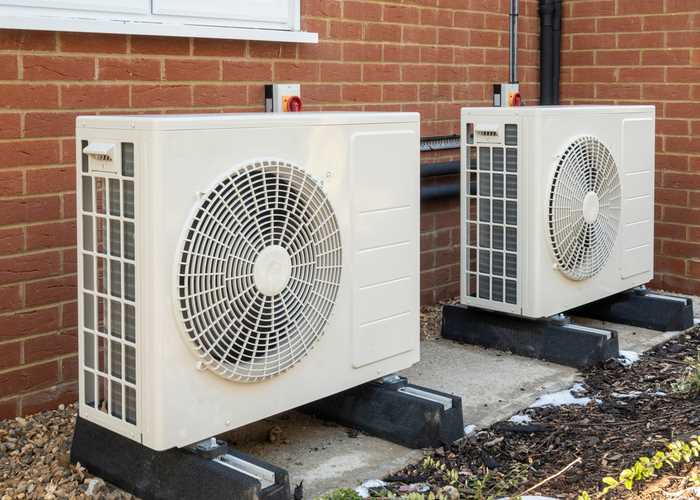The information we’ve provided here is designed to help you make an informed decision about whether or not an air source heat pump (ASHP) is right for you. If you have any questions that aren’t addressed, feel free to contact us directly.
If your question relates to how a heat pump works, we have a dedicated blog post you can read here.

ASHPs are a low carbon alternative to traditional heating systems like gas boilers, but no, they are not zero carbon. They still require electricity to run, but the amount of energy they consume is relatively low compared to the heat energy they produce.
A 2018 report from the Committee on Climate Change estimated that 19% of the UK’s greenhouse gas emissions come from heating our home and work environments, so switching to low carbon alternatives could see significant gains, particularly as we make the move toward more renewable sources of energy supply.
There’s no straightforward answer here, as there are several factors that can impact a heat pump's performance. System capacity, manufacturer, and seasonal efficiency rating all play a part, as do the design and fabric of the building in which they’re installed.
We also need to account for the way these systems work. They run at a lower heat supply, so you’ll need large heat emitting surfaces like underfloor heating for maximum effectiveness. When considering installation of an air source heat pump, it’s best to seek professional guidance to ensure you get the most effective results possible.
Air to water heat pumps (which work in conjunction with wet central heating systems) do work with radiators - but as we’ve just discussed, they require large heat emitting surfaces. This means your existing radiators might not be up to the job. They also require higher flow than traditional systems, so it’s likely that your pipework would need replacing for a larger diameter too.
You’ll need to reference the flow temperature of the heat pump and size your radiators and pipework accordingly.
Thanks to technological advancements, modern heat pumps can last for anything between 20 and 25 years - so although their initial cost may be higher than a standard boiler, their longevity (and efficiency) often makes up for this in the long run.
However, this expected lifespan will only be achieved with appropriate maintenance. An annual service by a qualified technician will be required to ensure your system lasts as long as it should.
ASHPs can indeed be retrofitted, and in many cases with little disruption. However, you will need to consider how suitable they are for your property, and any additional work that may be required.
They’re best suited to well insulated homes so you may need to make some upgrades here, as well as potentially installing new radiators or underfloor heating. In older properties with particularly poor insulation, an ASHP simply won’t be able to meet your heating needs.
ASHPs draw in heat from the outside air and pull it through a heat exchanger, where it’s absorbed by a refrigerant. The refrigerant then evaporates into a gas, which is compressed - increasing its temperature above that of the heat initially absorbed.
This is how they continue to work in colder weather - anything down to around -15℃. However, below zero and their efficiency does begin to fall.

You’ll need sufficient space outdoors to house the external unit of your ASHP, with enough space around it to ensure a good air flow. These units can either be fitted to the ground or attached to a wall, but must be located one meter clear of any property boundaries. External units under 0.63m3 can be installed under permitted development.
Internal units are typically no larger than a gas boiler, so should cause no space issues.
Noise emitted from an air source heat pump comes from the external unit. If you were to stand one meter away from this, the noise level from a quality, well installed system should be between 40 and 60 decibels (typically towards the lower end of the scale).
The further away you move, the quieter it becomes, so as long as care is taken over installation and the system is properly maintained, noise shouldn’t be an issue.
Yes. In fact, when you look at a modern air conditioner, you’re actually looking at an air to air heat pump. The system’s cycle can be reversed depending on the time of year to meet both space cooling and space heating needs.
You can also pair compatible units with air to water heat pumps to benefit from low carbon central heating in winter, and air conditioning in summer.
